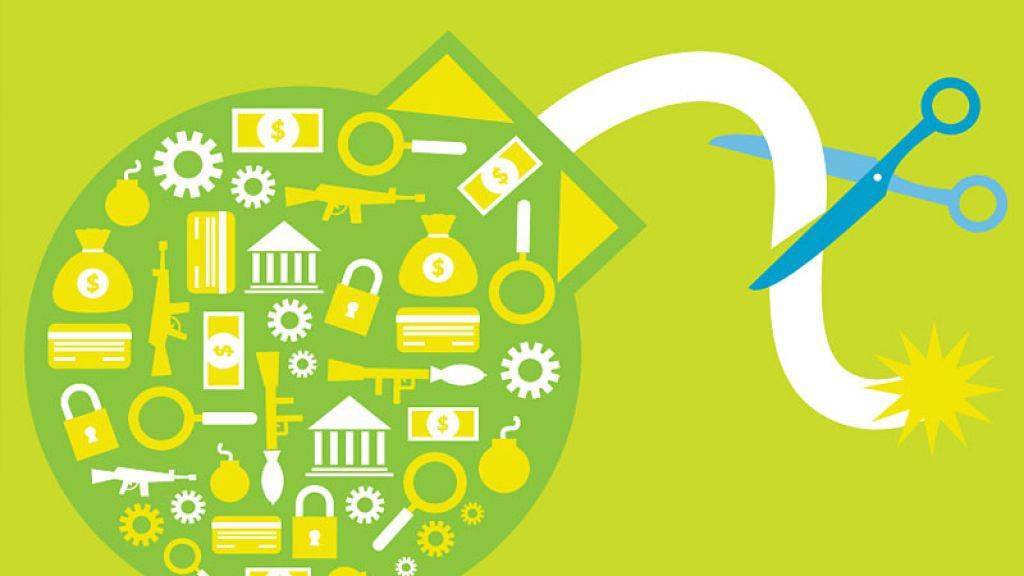COVID-19 hasn’t put the foot on the brakes for criminals and fraudsters. But trade is often a process for criminals to disguise the origin of goods, undertake illicit activity and attempt to integrate into the financial system. We spoke to BACB’s new Money Laundering Reporting Officer, Clare Wilson on the new risks when combating fraud at the height of the pandemic, and the role new technologies can play in fighting financial crime.
Clare Wilson, British Arab Commercial Bank (CW)
Deepesh Patel, Trade Finance Global (DP)
Money Laundering versus Fraud
DP: What are the main differences in mitigating money laundering, when compared to dealing with fraud?
CW: Fraud and money laundering pose different risks to a bank; although these crimes are linked and similar techniques can be used to mitigate these risks. As an example, fraud could occur through a client misrepresenting their financial position and receiving funds they cannot repay, creating a direct financial loss to the bank. Money laundering refers to the process used by criminals to disguise the origin of proceeds from illicit activity (such as fraud) and make them appear legitimate by integrating them into the financial system.
Risk management of both requires intimate knowledge of the clients and counterparties with which you are dealing, as well as an experienced team that is able to spot red flags if they arise.
This is particularly true for banks working in the trade finance space, that deal with transactions involving multiple counterparties, and frequently across multiple territories. A deep understanding of the industry, customers, and the transaction itself can help detect potentially suspicious behavior or unusual patterns of activity.

Profiting from COVID-19?
DP: How has COVID-19 changed the fraud and money laundering space? What additional challenges are you facing, and have you been forced to adapt?
CW: While we’ve not generally seen any major changes in money laundering or fraud typologies, the pandemic has created opportunities for criminals to deceive and profit from these exceptional circumstances. The rapid move to remote working required many banks to adopt digital alternatives at an unprecedented pace in order to maintain some degree of business continuity. This, of course, introduces new risk factors that banks need to be aware of – for instance, accepting digital copies of documents rather than original documentation provides opportunities for criminals to exploit or intercept.
We have also seen some increases in less sophisticated criminal activity, such as phishing emails, with criminals adapting these to read as information on COVID vaccines or notifications of fines for breaking lockdown rules.
PODCAST: Wolfsberg Group: Fighting financial crime when the going gets tough (S1 E37)
Can artificial intelligence and machine learning tools help tackle money laundering?
DP: In what ways are artificial intelligence and machine learning tools changing how we tackle money laundering?
CW: Banks have long seen huge potential in data analytics for detecting financial crime (including money laundering), as technology offers a way of complementing the manual practices that still often characterize the financial crime compliance space. Artificial intelligence and machine learning will enable a much smarter way of detecting patterns of behavior and spotting anomalous activity in a more effective and efficient way.
BACB has deployed a comprehensive suite of detective and preventative controls to mitigate financial crime risk, aligning to current industry standards, but as with other banks, we’re also exploring how machine learning and artificial intelligence can supplement our existing control framework. But as essential as an investment in software is, this must always be backed up by a highly trained workforce with deep regional and product expertise.
In terms of trade finance, the industry has come a long way with respect to digitalization but remains paper-intensive. This is partly due to the difficulty in finding a digital alternative to match the skill of individuals in checking documents manually– BACB’s compliance capabilities, for example, are immeasurably enhanced by its team of experts, who understand the specialist trade routes and transactions.

DP: Looking forward into 2021, what predictions would you dare to make about how the money laundering landscape will change in the coming years?
CW: We must remember that as financial institutions develop smarter and more effective ways of detecting and preventing financial crime, criminals are also simultaneously developing new, sophisticated methods to defraud and deceive. This race to keep pace will continue to shape the money laundering landscape in the future. Technology, of course, is key to continually strengthening our financial crime detection and prevention capabilities. We are already seeing greater collaboration across the financial services sector as a result, with banks working with fintech to develop more secure software solutions for their clients. While this is a trend that is likely to continue, it should again be noted that technology cannot go the whole way in countering financial crime. Investing in an expert workforce that is trained to spot red flags is equally important to invest in compliance software.
Spotlight on: Clare Wilson, Money Laundering Reporting Officer, British Arab Commercial Bank (BACB)
DP: You’ve had extensive experience in the sector. What skills have you gained that you think will be useful as BACB’s new Money Laundering Reporting Officer?
CW: I’ve been working in financial crime prevention roles for almost a decade, and bring broad expertise across risk assessment, compliance monitoring, innovation in financial crime detection, governance, and strengthening policies and procedures. Working for one of the largest players in the industry has given me great insight into how efficient and coordinated compliance frameworks can bring benefit to both clients and employees, and it is something I am keen to reinforce at BACB. During my time at HSBC, I also worked in an advisory capacity with the trade finance team; something which I am sure will be useful given BACB’s trade finance specialty.
DP: What are your top priorities in this new role?
CW: Compliance should always be considered an area of continual renewal and enhancement – complacency can be fatal. One of my top priorities at BACB will therefore be to look for ways to streamline existing processes to make them as efficient and robust as possible. A key aspect of this will be putting the right frameworks and training in place to enable colleagues to grow the business safely and understanding when to escalate if there are possible signs of financial crime risk.
Compliance is important, not only to the Bank’s own lending activities but also in terms of its ability to distribute trade assets in the international markets. Indeed, BACB’s distribution function hinges on its reputation for sourcing good quality and well risk-managed trade assets – therefore, the Bank’s ability to demonstrate that the risks associated with specialist markets in which it operates can be managed safely and sensibly, is imperative. BACB’s training and capacity-building workshops for financial institutions in its local markets, too, often aim to educate around best practices and standards in compliance.
Ultimately, the work we do has a direct impact on the financial inclusion agenda – both in helping to generate more appetite for African credit risk among foreign lenders, and helping clients adhere to the financial crime risk management standards that are required to participate in the international markets. As such, it should always be treated with the utmost priority.

































